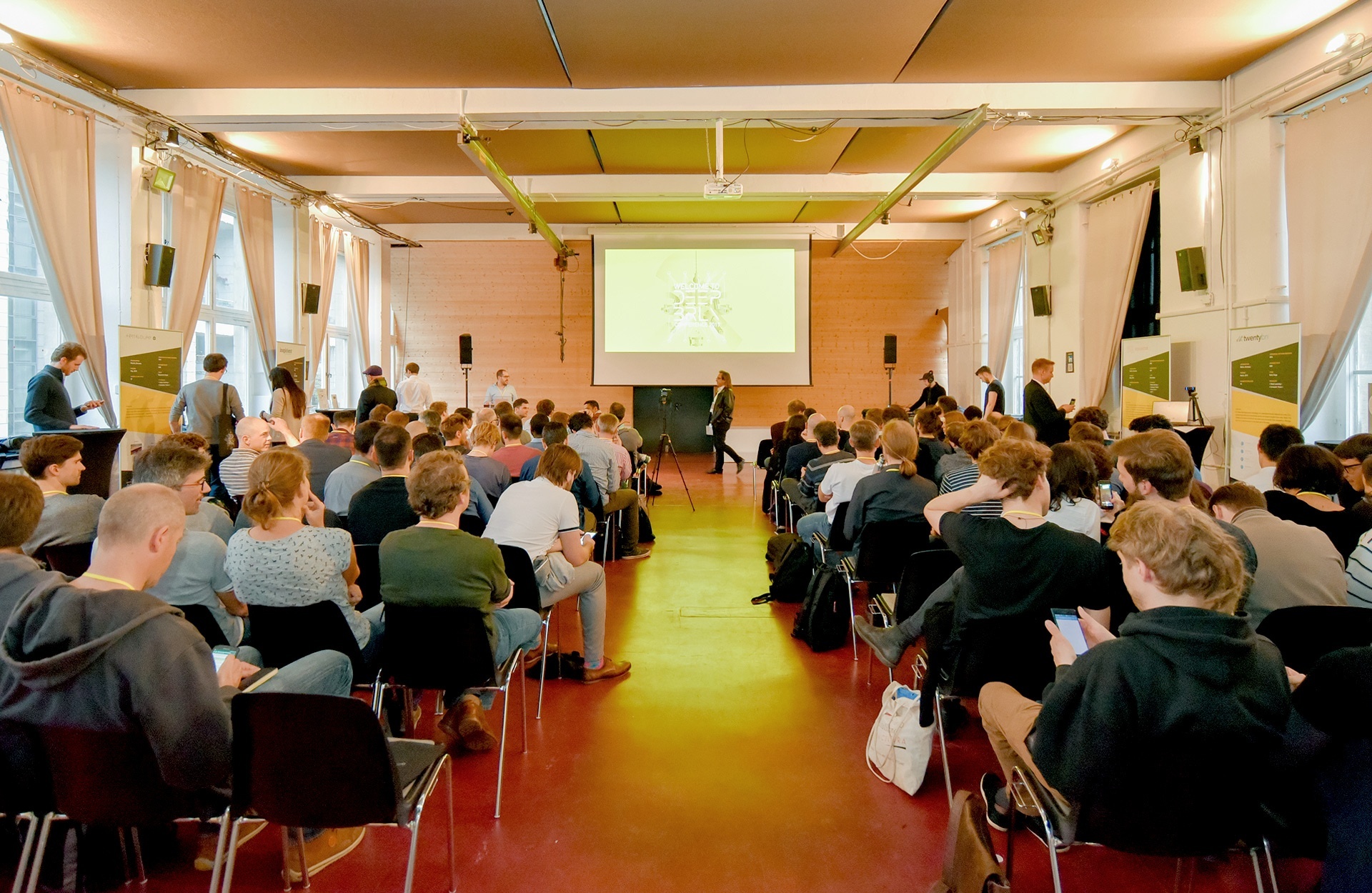Berlin, Germany. On October 24, more than 200 participants from the Science sector, entrepreneurs, students, and start-ups gathered in Berlin’s Spreewerkstätten for the first Deep Berlin Conference to showcase and discuss the latest trends, innovations and challenges in the fields of Artificial Intelligence (AI) and Deep Learning. The interactive conference format combining expert presentations and project showcases was initiated by local technology provider HELLA Aglaia Mobile Vision GmbH, a leading developer of intelligent image processing systems for driver assistance systems, people counter, and electromobility, as well as its partners, among them chip manufacturer Nvidia, Berlin Partner, the German Research Center for Artificial Intelligence (DFKI) as well as Data Science Retreat, and Intrepid Delta, who specialize in professional training programs and tech event organization respectively.
Designed to represent the variety of advancements in Artificial Intelligence and Deep Learning in the German capital as well as the stakeholders involved, the event aims to build a sustainable community for regular exchange and interaction. Benefiting from both an established IT community and a lively start-up scene, Berlin has already assumed a leading role in the field of Artificial Intelligence: “More than 50 Berlin companies center their work around AI products, just as well as our dedicated development team which has been engaged in the application of neural networks for several years”, explains Kay Talmi, Managing Director at HELLA Aglaia. “This is why we would like to act as an interface and provide a platform especially for young entrepreneurs.”
Deep Learning through neural networks, a part of machine learning, is currently the most promising approach in furthering Artificial Intelligence. Based on deep learning algorithms, machines learn to recognize and understand our world, how to navigate it and make decisions. The deep learning concept is based on deep neural networks (DNNs) which are made up of a structure of simple adaptive units (neurons) and capable to learn and execute highly complex tasks, such as autonomous driving.
In addition to the application in the automotive industry, the more than a dozen speakers presented milestones and prospective use cases from medicine to robotics with an emphasis on training neural networks in the recognition and interpretation of images and acoustic signals. The young entrepreneurs took to the stage during the start-up marketplace to showcase intelligent solutions from a wide range of applications, such as computer-aided vision, object recognition, and process automation.
The conference partners were more than satisfied with the comprehensive insight into Berlin’s innovation landscape, which receives decisive support from Berlin Partner: “Berlin offers start-ups what they are looking for: An international community, IT talents, entrepreneurial spirit, and an excellent scientific environment”, says Dr. Stefan Franzke, Managing Partner at Berlin Partner. “By initiating the Deep Berlin Conference, we hope to further establish Artificial Intelligence as part of Berlin’s economic landscape.”
More information on the Deep Berlin Conference, the event partners, and the participating start-ups is available online at www.deep-berlin.ai.

